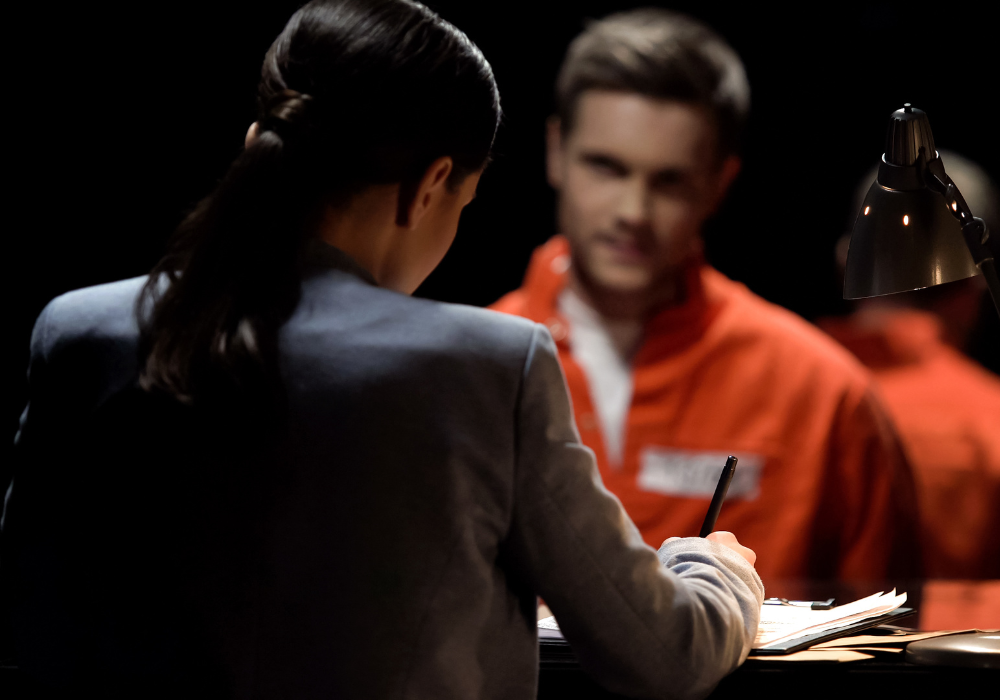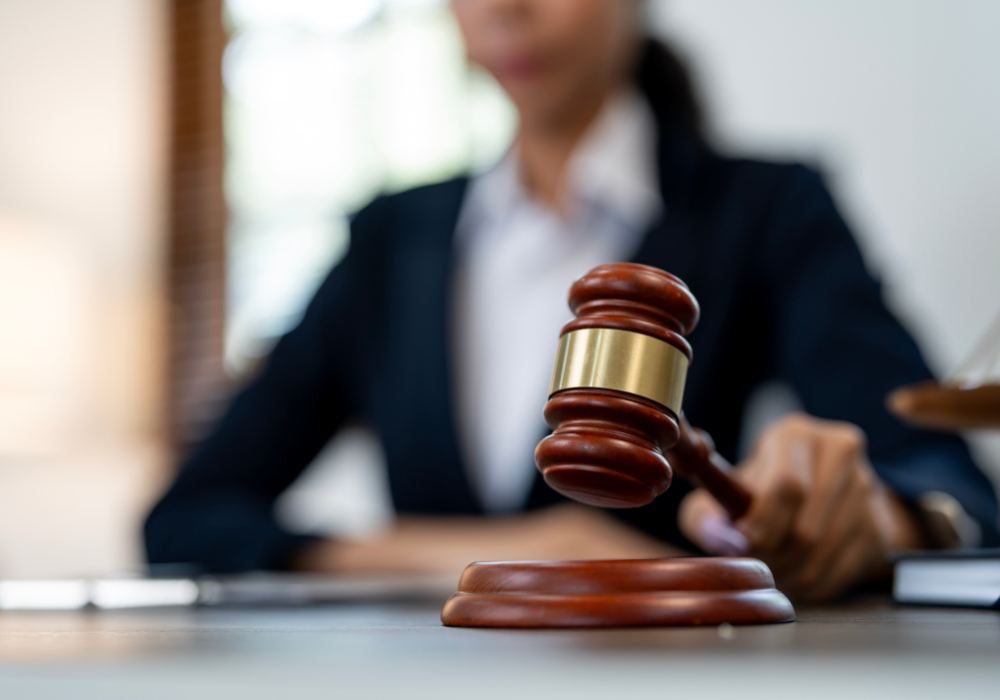Faced with endless queues of complex legal issues, you may also feel the need to hire a defense attorney. So it is possible to file criminal charges, just the right lawyer should be approached to help solve the problem. In addition, it may be necessary to work with a defense lawyer for advice. This article will provide you with the following legal insights on how to effectively work with your legal representation. The material will be of interest to potential clients, as well as industry experts and the general public. Let’s deal with this important topic in detail.
Understanding the Role of a Defense Attorney
A defense lawyer, also known as a criminal defense attorney or a public defender, is a lawyer that represents an accused party in criminal proceedings. Their job is to defend their client’s legal rights and interests in a court of law.
The main responsibility of a defense lawyer is to provide legal representation to their client. This includes giving them expert legal advice, guiding them through the legal process and making sure that they receive a fair trial. Defense lawyers must be familiar with all aspects of the criminal justice system and be able to think on their feet.
In addition to providing legal counsel, defense lawyers are also responsible for investigating the case and presenting evidence in court. They may also be required to negotiate with prosecutors and serve as a liaison between their client and the court.
When looking for a defense lawyer, it is important to understand their roles and responsibilities. This will help you to make an informed decision about who to hire and ensure that you get the best possible representation in court.
What to Look for in a Defense Attorney
One of the most important decisions you will make is in choosing a defense attorney. There are a few things you should consider when making this decision. The first is experience. You will want to find an attorney who has a lot of experience handling cases like yours.
The second is specialization. Some defense attorneys specialize in certain types of cases, such as drug offenses or white-collar crimes. If your case is of this nature, you will want to find an attorney who has experience with these types of charges. Another important consideration is communication. A good defense attorney should be able to explain the legal process to you in a way that you can understand. They should also be available to answer your questions and keep you updated on the status of your case.
Initial Consultation What to Expect
The first meeting with a defense attorney is known as an initial consultation. This is a time when you can explain your case to the attorney and see if they are someone you can work with. Before your initial consultation, be sure to gather all of your important documents and have a list of questions ready to ask the attorney.
The attorney will likely start by asking you to explain your case. They will want to know what happened, what charges you are facing, and what evidence they have against you. They may also ask about your background and personal history. Once you have given the attorney all of the information they need, it is important to be honest and forthcoming with your answers.
You also have the right to ask the attorney questions during your initial consultation. Be sure to ask about their experience, their defense strategy, and what you can expect from your case. You should also inquire about their fees and any other costs that you may be responsible for. The initial consultation is also a time for you to get a feel for the attorney and see if they are someone you would feel comfortable working with on your case.
Building a Strong Client-Defense Attorney Relationship
A strong and effective working relationship is what makes a defense attorney successful with his client. By ensuring healthy components of trust, communication, and team effort one can have better working and communication skills with the client. Both the lawyer and the client can cooperate and execute the desired goals and outcomes.
To start with, trust plays a pivotal role between a client and the lawyer. As a client, you should be able to trust your lawyer by all means. If you are open and honest with your attorney in the information you provide on your case, your lawyer in turn can trust you with the defense case. This means to share all the relevant information and details even if they do not seem as important. The success of your case is a priority as well as that of the attorney. Therefore, the relationship must be a two-way street as both parties are expected to cooperate with each other.
Communication is key. The client should always ensure that they keep in touch with their attorney on any issue concerning the case. You should feel free to ask questions or raise any other important issue that you may need clarifications with. The attorney will always make sure that the client is abreast with the necessary information of the case and ensure that they are in the know in every aspect of the case at hand.

Navigating the Legal Process
If you are accused of a crime, the legal process can be intimidating and confusing. But with an experienced defense attorney on your side, you can navigate each step with confidence. From arraignment to trial, here is what you can expect during the legal process.
After you are arrested and charged with a crime, your defense attorney will begin working on your case. They will file motions, gather evidence, and prepare for trial. Your attorney will explain the charges against you and discuss possible defense strategies. They will fight for the best possible outcome, whether that means negotiating with the prosecutor, plea bargaining, or representing you at trial.
Your attorney will advocate on your behalf throughout the process and ensure that your rights are protected. They will challenge the prosecution’s evidence and cross-examine witnesses. By leveraging their experience and expertise, your defense attorney will work tirelessly to build a strong case and secure a favorable resolution.
The Importance of Evidence in Building a Defense
In criminal defense cases, ss we have already known, the evidence is very important. Your defense attorney will review all the evidence in your case and will tell you the strengths and weaknesses of them. The defense attorney will examine the prosecution’s evidence that support their argument to prove your guilt. This will help the defense attorney determine a way to overcome it.
In that case, your defense attorney will help you in these ways. For example, your attorney will look into any physical evidence, witness testimony, or expert opinion that could be used to build your defense. The defense lawyer also may try to determine the credibility of a witness and also any bias or motive that may affect the witness’s testimony.
The attorney may ask for the need of expert witnesses who can testify on your behalf in the case. In this case, an attorney can use evidence to help build a strong case for you.
Understanding Plea Bargains and Negotiations
Plea bargains and negotiations are a common element in most criminal defense cases. This may take the form of an agreement between your defense and the prosecution, where the defendant is charged with a lesser offense, and an offer of a lesser sentence is in place. This may be an attractive proposition for many defendants, but it is only in the best case.
Your defense attorney will be sure to help you through this process. They will weigh the potential for a plea bargain to be successful and provide you with the best possible outcome. Your attorney will review all of the facts of your case and consider the strength of the evidence, the charges that you are facing, and the risk of conviction at trial.
When a plea bargain is in your best interest, your attorney will negotiate with the prosecution and secure the most advantageous deal. A decision to accept a plea bargain is not to be made lightly, and your attorney will advise you accordingly. However, in the end, it is your decision, and you will have an experienced attorney at your side to guide you through your decision.
Preparing for Trial
Trial Preparation: Once a criminal defense case goes to trial, the defendant’s attorney will begin to prepare for trial. This includes strategizing the best way to present the defense’s case in court. Your attorney will conduct research, interview witnesses, and consult with experts who may testify on your behalf.
Your attorney will work with you to prepare for trial. They will explain the trial process to you, including jury selection, opening statements, and cross-examination. By ensuring you are familiar with the process, your attorney can help reduce anxiety and increase confidence in the courtroom.
Trial: During the trial, the defendant’s attorney will present their client’s case. They will put forth evidence, challenge the prosecution’s arguments, and make persuasive closing arguments to the jury. The attorney will fight vigorously for their client’s rights, using their legal knowledge and strategic skills to achieve the best possible outcome.

The Role of Appeals in Criminal Defense
Sometimes a verdict is not what you had hoped, and you have no choice but to appeal. Appeals are a way to take your case to a higher level of the court, usually a state’s Supreme Court, and ask for the lower court to be reviewed because of errors that were made in the initial case. An appellate attorney will look at your case and see if an appeal is worth it and help you through the appellate process.
Appeals, however, give you an opportunity to have your case be reviewed by a higher court and see if any legal errors were made during your original trial that may have changed the outcome. Your attorney will prepare a thorough appellate brief for your case and present strong and compelling legal arguments for a reversal of the case to the appellate court, allowing for the best possible outcome.
Appeals can be a long and challenging process, but your defense attorney is there for you every step of the way and will give you the best chance possible of getting the outcome you need.
Navigating Post-Trial Considerations
After a verdict has been delivered, there are still a few steps to complete. Your criminal defense lawyer will be there to walk you through each one, explaining what to expect and why it is necessary. If the verdict was in your favor, your attorney will help you with any necessary paperwork to close your case. They will also advise you on whether there are any civil issues that may need to be pursued in connection with the criminal charges. In the event that post-conviction relief is an option, your criminal defense lawyer will be there to guide you through that process as well.
No matter the verdict, your defense attorney is still on your side. They are there to help you make the transition back to your life outside of the court system as smooth as possible.




